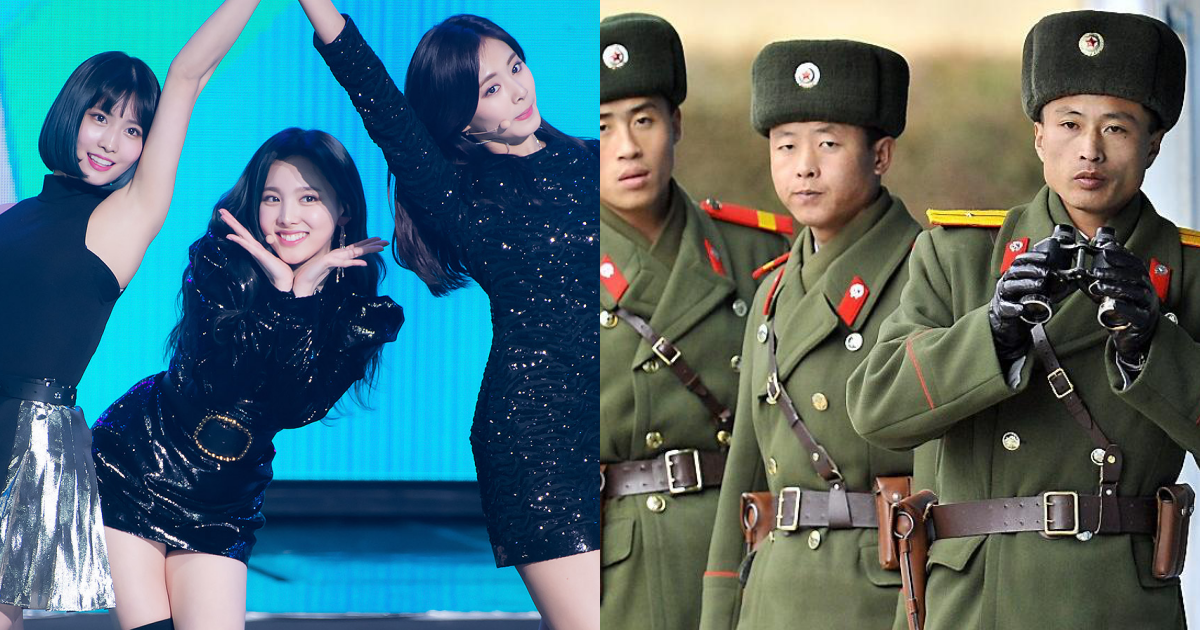North Korean Pop Music (K-Pop) Overview

North korean kpop – North Korean K-Pop, also known as “K-Pop in the North,” emerged as a distinct genre in the early 2000s, influenced by South Korean K-Pop and Western pop music. Unlike its South Korean counterpart, North Korean K-Pop is heavily influenced by propaganda and censorship, shaping its unique characteristics and themes.
Unique Characteristics and Styles
North Korean K-Pop is characterized by its patriotic and socialist themes, often incorporating messages of loyalty to the Kim family and the Workers’ Party of Korea. The music is typically upbeat and energetic, with a strong emphasis on traditional Korean instruments and folk melodies. The lyrics often focus on themes of national pride, unity, and the achievements of the North Korean regime.
North Korean K-pop, a burgeoning industry, has captivated global audiences. The rise of this phenomenon is not isolated, for it mirrors the transformative power of music in other realms. In the United States, Tim Scott , a renowned politician, has championed the arts, recognizing their ability to bridge divides and inspire unity.
As North Korean K-pop continues to make waves, it serves as a testament to the universality of music’s transformative influence.
Role of Propaganda and Censorship
The North Korean government exercises strict control over all forms of media, including music. K-Pop in the North is no exception, and the government uses it as a tool to promote its ideology and control the narrative about the country. All songs must be approved by the government before they can be released, and any content deemed subversive or critical of the regime is strictly prohibited.
North Korean K-pop, a fusion of traditional Korean music with modern pop elements, has gained popularity in recent years. While it shares similarities with South Korean K-pop, North Korean K-pop has its own unique characteristics, reflecting the political and cultural differences between the two Koreas.
Its rise has sparked interest in the lives and experiences of North Korean artists and the role of music in shaping cultural identity. North Korean K-pop offers a glimpse into a hidden world, providing a platform for North Korean artists to express themselves and connect with audiences around the globe.
Notable North Korean K-Pop Groups and Artists

Despite the strict cultural regulations in North Korea, a small but vibrant K-Pop scene has emerged in recent years. These groups and artists have gained popularity both within North Korea and internationally, showcasing the country’s musical talent and cultural diversity.
Here is a table listing some of the most popular North Korean K-Pop groups and artists:
| Group/Artist | Year of Debut | Notable Songs | International Recognition |
|---|---|---|---|
| Moranbong Band | 2012 | “We Are the One”, “Let’s Go to Mount Paektu” | Performed in China and Russia |
| Pochonbo Electronic Ensemble | 1983 | “Arirang”, “My Homeland” | Toured internationally, including to South Korea |
| Wangjaesan Light Music Band | 1985 | “Our Leader”, “Song of Unification” | Known for their patriotic songs |
| Samjiyon Band | 2013 | “We Are the Future”, “Love for the Leader” | Performed at the 2018 Winter Olympics in South Korea |
These groups and artists represent a diverse range of musical styles, from traditional Korean folk music to contemporary pop and electronic dance music. They have contributed to the growth of North Korean popular culture and have helped to promote a more positive image of the country internationally.
Influence and Impact of North Korean K-Pop: North Korean Kpop
North Korean K-Pop (NK-Pop), while still nascent, has gradually gained a limited yet growing influence beyond the borders of North Korea. However, the unique political and social circumstances surrounding North Korea present challenges and restrictions for its artists in achieving international recognition.
Challenges and Restrictions, North korean kpop
NK-Pop artists face several obstacles in gaining global recognition. These include:
- Political Isolation: North Korea’s isolation from the international community limits opportunities for cultural exchange and collaboration.
- Government Control: All cultural production in North Korea is strictly controlled by the government, which can censor or prohibit content that does not align with its ideology.
- Limited Access to Technology: North Korea’s restricted internet access and technological infrastructure hinder artists’ ability to connect with global audiences and promote their music.
Potential Impact on Inter-Korean Relations and Cultural Exchange
Despite these challenges, NK-Pop has the potential to play a significant role in inter-Korean relations and cultural exchange. It offers a unique platform for North and South Koreans to connect through a shared love of music and popular culture. By promoting dialogue and understanding, NK-Pop can contribute to the gradual easing of tensions and fostering greater cooperation between the two Koreas.